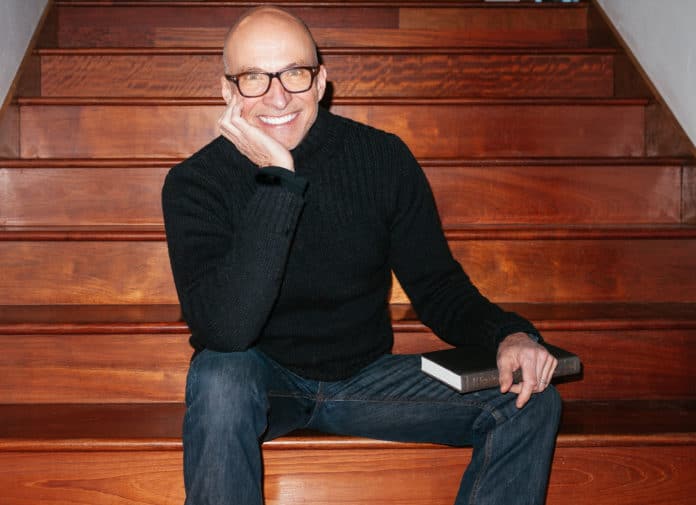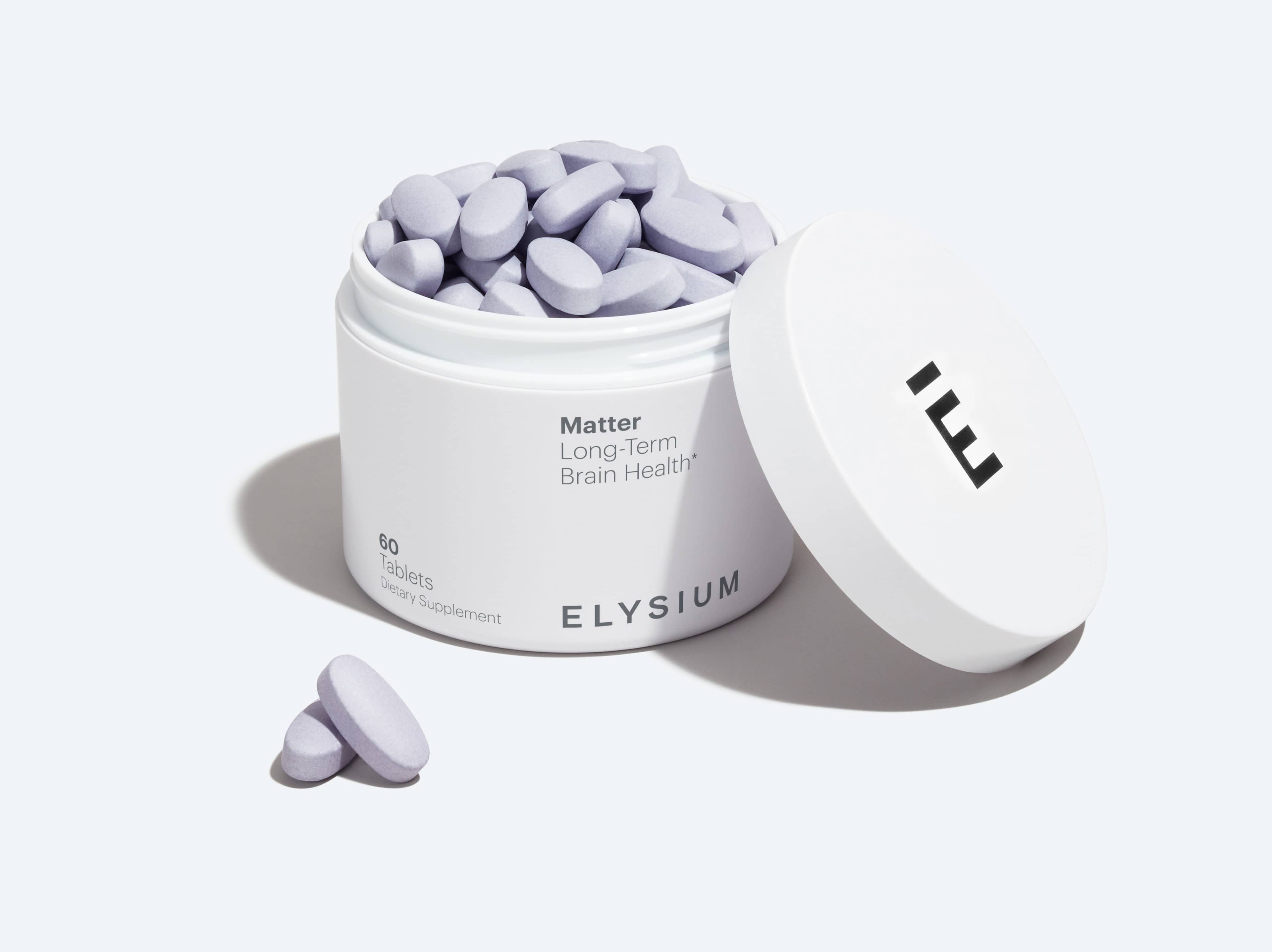I like to think of my brain in the same terms I think about my body: It needs nutrition and exercise to maintain its health. Neuroplasticity is an important concept to understand when we’re talking about a healthy, thriving brain. It refers to the ability of neural networks in the brain to change through growth and reorganization. In other words, the brain is not fixed. It can change, and it can even grow and become stronger, just like the rest of your body. By challenging the brain with novelty, while giving it the nutrition it needs, it is possible to be neuro-generative, meaning growing your brainpower. As with physical decline, mental decline is far from inevitable.
Nutritional Needs of the Brain
The brain has a number of nutritional needs to help it function optimally. The first is water. The brain is mostly water and if we are dehydrated, it works less well. I start my day with two 16oz glasses of filtered water with lemon and a tiny bit of pink Himalayan salt. This is also the time of the morning I take Basis and Matter, two products from Elysium Health.
I take control of my brain health. Even in healthy adults, there is up to a 20 percent reduction in overall brain volume throughout their lifetime. The B-vitamin complex in Matter from Elysium Health has been proven to slow grey matter atrophy in older adults with mild memory concerns. In areas linked to spatial long-term memory and visuospatial learning, this atrophy was reduced by an average of 86% over two years as shown in a study conducted by The Oxford Project to Investigate Memory and Aging (OPTIMA). Here is the remarkably compelling image that convinced me to take Matter every day, and to recommend it to all my friends and family. By giving my brain the nutrients it needs, I am giving myself the best chance for having long-term brain health.

Meditation and the Brain
After rehydrating and taking Matter and Basis, I meditate. Meditation can be difficult in the beginning, and I have read this is because of the rewiring going on in response to learning this new task. If this is you, don’t worry. It gets better, and in a short time you will be at the point where 20 minutes will seem like nothing. For me, it was incredibly difficult, until it suddenly wasn’t.
There is a wonderful Tedx talk by neuroscientist Sara Lazar, in which she shares brain scans that show meditation can actually change the size of key regions of the brain. Her study demonstrated that meditation positively affects areas of the brain typically associated with aging. These changes in grey matter can lead to improving our memory and making us more empathetic, compassionate, and resilient under stress.
Positive Effects of Novelty
Novelty is also a great way to challenge and stimulate the brain. There are many forms of novelty, from exploring new places and new body movements, to new languages and meeting new people. If any of these are a bit difficult, that is a sign that we are making new neural connections. But it is not all “no pain, no gain.” There is a dopamine linkage to learning new things. That’s the feel-good neurotransmitter molecule associated with gratification, which is also associated with finding the delights in the unknown. Within the constraints of the current times, just going to another section of town and picking up take out that I have never had gives me a certain thrill of novelty.
When I was living in Paris, with my initially rudimentary knowledge of French, the first three months were tough. My head quite literally ached every night as I struggled to communicate in a new language. My brain was adapting and making new neural pathways. There was a structural change happening in regions known to serve language functions during foreign-language acquisition. Once enough of the connections were made, my facility to speak and understand seemingly improved overnight. My brain had adapted and made these new connections because of the circumstances I was living in and the new challenges I was opening myself up to each day.
This seems to be true for learning difficult subjects in general — when challenged with a new and difficult task, the brain will respond positively. For instance, in this study of medical students, MRIs were used to measure grey matter. When measured before and after a three-month period of learning and study for a medical examination, their grey matter increased significantly.
Mornings Set the Tone for the Day
Interestingly, our brains are most sensitive to new information in the mornings. For instance, if the first thing I were to do in the morning is look at Twitter, that is what will make the most impact on me that day. Because of this, I choose not to engage with social media, news sites, or even my email until after I meditate, go for a walk, and sometimes listen to a book abstract. I like to remember that, just as we are in control of what we take in nutritionally, we are also in control of the information we take in, and therefore the effect that information has on our brains. The more we practice a behavior, the more it gets hard-wired into our brain.
Reading
Almost without exception, every successful person I have ever met is a big reader. They are constantly devouring books. In the last few years, I have systemized my reading into two main categories. The first is for information and skill-building; the second is to expand my imagination of what is possible. In general, my reading is done in the 90 minutes before sleeping. I will begin with a fact-based informational book, then finish with fiction. Lately, that fiction has taken the form of off-planet science fiction, but I read classic fiction, and pretty much anything that is well written and creates another world for me to drop into.
For example, I am currently reading Late Bloomers, a non-fiction book about late-in-life achievers, The Almanack of Naval Ravikant about his life lessons, and the science fiction book Network Effect. This gives me a nice mix of history, advice, and imagination. If it seems like my reading is intentional, it is, as are my nutritional supplements.
We are always looking for new insights and books to explore, so please share with us what is inspiring you. What are you reading these days? What is your brain-health routine?



I meditate twice daily via TM and the David Lynch Foundation with Bob Roth the leader. Thousands attend and thankfully they re-run almost on the hour. The twenty minutes used to seem like a lifetime but now it is nothing. The second meditation at the end of the day helps me unwind. It is a life saver and builds routine into these unprecedented times. I am a firm believer in changing neural pathways and meditation is definitely a way to do that. What I forget to do and is another helper is journaling….I must remember!
Thank you for the article. I love to read already so, I checked that box. Vitamin B complex? Check again. Exercize? Got that. I tended to think my full time work in financial services keeps my brain sharp. This article emphasizing new knowledge and challenges made me realize that I need to greatly increase my exposure to broader topics and intellectual experiences to optimize my “brain strength”. The only thing keeping me from doing so is a certain insecurity, if I’m to be totally honest about it. I guess I better get used to being a newbie at some things at 60!
I was trying to read this article and the verizon advertising kept covering up the content.
Great article David. Thanks for sharing these insights!
Hi David, great writeup again, thanks for that.
Just a little tip from me if you like SF enough: try some books by Iain Banks. The last three in his Culture series are awesome.
Context: I’m not a big fan of SF and for years only liked The Hitchhiker’s Guide To The Galaxy series that actually makes fun of the whole genre.
So yeah, give it a go and enjoy. It will definitely help your imagination to expand. They blew my mind away and I’m a pretty imaginative person myself.
Cheers from NZ
Arjan
I’m another reader annoyed by the pop-up ads. Not only do I ignore the advertiser, I eventually stop using the sites that display them.
I loved this article and I have shared it with all my family! I understand the ‘pain in the brain’ as English is my third language. I only discovered Neuroplasticity last year and I’m not looking back, it opened up a whole new world! Thank you for this article. I’m only 39 but I’m so inspired to be a healthy and strong senior one day.